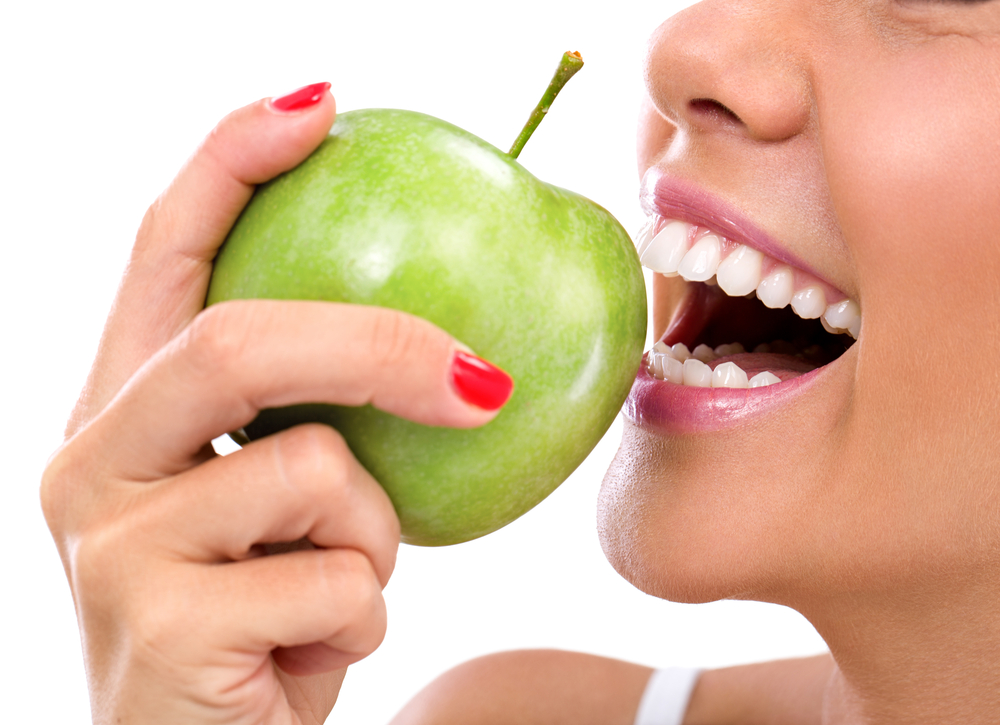

Diet Can Affect Your Dental Health
Maintaining good oral health goes beyond regular brushing and flossing. While proper oral hygiene practices are essential, a well-balanced diet can also play a significant role in promoting dental health. Certain foods are known to strengthen teeth, fight harmful bacteria, and support overall gum health, whereas other foods can cause unwanted damage.
Learn more about the best tooth-healthy foods by reading our Staten Island blog below.
The Best Foods for Healthy Teeth
Crunchy Apples
Apples are not only delicious but also beneficial for your teeth. Their crunchy texture helps stimulate saliva production, which aids in neutralizing acid and rinsing away food particles. Additionally, apples are high in fiber and water content, promoting healthy gums and increasing saliva flow, which acts as a natural defense against tooth decay.
Dairy Products
Dairy products like milk, cheese, and yogurt are rich in calcium and phosphates, which are vital for strong teeth and bones. Calcium helps protect tooth enamel and strengthen teeth, while phosphates aid in remineralizing tooth enamel, reversing the early stages of tooth decay. Dairy products are also low in sugar, making them a tooth-friendly snack.
Leafy Greens
Leafy greens such as spinach, kale, and Swiss chard are excellent sources of vitamins and minerals that are essential for dental health. They’re packed with calcium, folic acid, and vitamin B, all of which contribute to gum health and can prevent gum disease. The high fiber content in leafy greens also requires more chewing, promoting saliva production and reducing the risk of tooth decay.
Crunchy Carrots
Much like apples, carrots are crunchy and help stimulate saliva production. Chewing on raw carrots can assist in cleaning the teeth and gums, while the vitamin A present in carrots contributes to healthy tooth enamel. Moreover, the natural fibers in carrots act as a natural cleanser, removing plaque and food particles from teeth.
Green Tea
Green tea contains compounds called catechins that possess antibacterial properties, helping to fight off harmful bacteria in the mouth. Regularly consuming green tea can inhibit the growth of oral bacteria and reduce the risk of gum disease and cavities. Additionally, it can help reduce bad breath and inflammation.
Citrus Fruits
Citrus fruits such as oranges, grapefruits, and lemons are rich in vitamin C, which is crucial for gum health. Vitamin C helps strengthen blood vessels, reducing inflammation and preventing gum disease. However, you’ll want to consume citrus fruits in moderation due to their acidity, which can erode tooth enamel. Rinse your mouth with water after consuming citrus fruits to minimize their acidic effects.
Almonds
Almonds are an excellent source of calcium and protein, both of which contribute to strong teeth and gums. The act of chewing almonds also stimulates saliva production, which helps neutralize acid and wash away harmful bacteria. Almonds also contain healthy fats that promote overall oral health.
Celery
Celery is a fibrous and crunchy vegetable that promotes oral health. Chewing on celery can help clean teeth, massage gums, and stimulate saliva production. It also contains vitamin C and antioxidants that contribute to gum health.
Cranberries
Cranberries are rich in polyphenols, which can help prevent plaque formation and reduce the risk of cavities. They contain compounds that inhibit the growth of bacteria responsible for tooth decay and gum disease. However, it’s important to consume cranberries in their natural form or opt for unsweetened cranberry products to avoid excessive sugar intake.
Water
While not technically food, water deserves a spot on this list due to its immense importance in maintaining dental health. Drinking water throughout the day helps rinse away food particles and neutralize acids.
Embrace Dental-Friendly Foods for a Radiant Smile
By incorporating these dental-friendly foods into your diet, you can enhance your oral health in various ways. These foods offer a wide range of benefits, including strengthening teeth, fighting bacteria, promoting gum health, and reducing the risk of cavities and gum disease. A balanced diet complemented by regular oral hygiene practices is crucial for achieving and maintaining a healthy smile for years to come.


